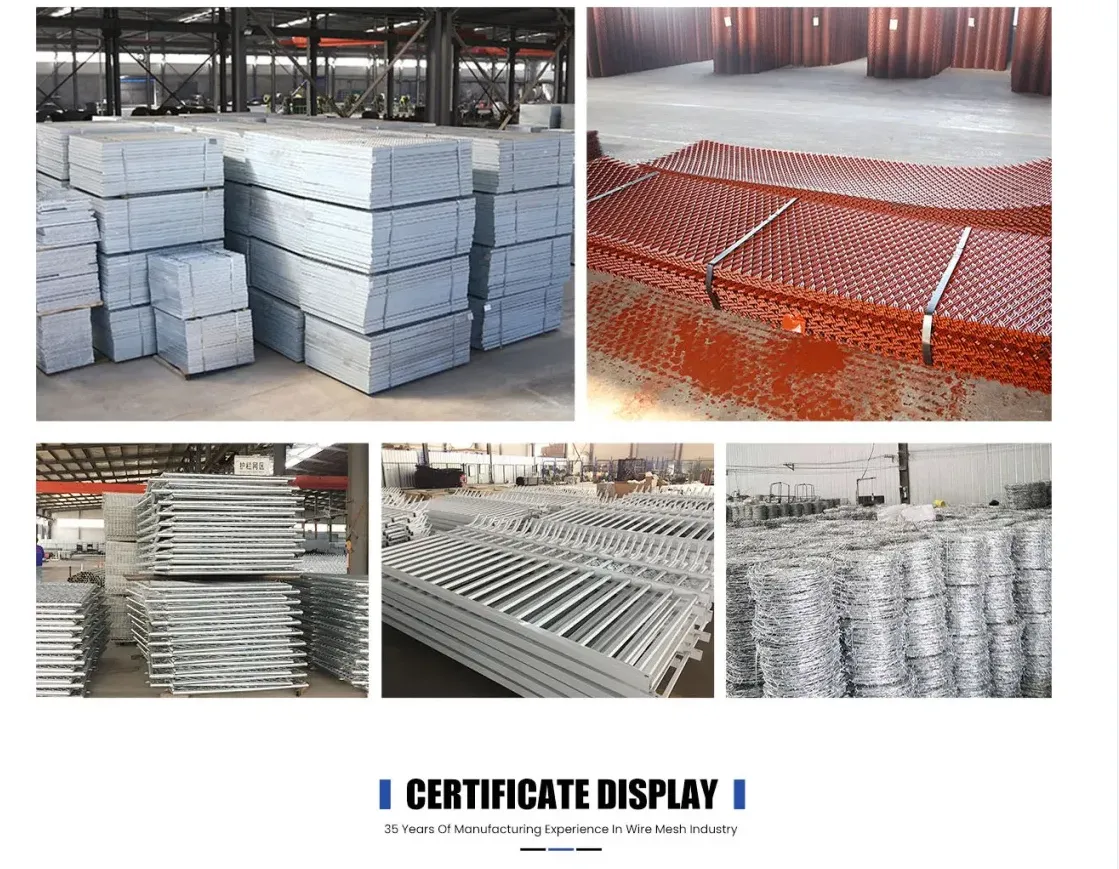The Versatility and Strength of Heavy Wire Fences
Heavy wire fences have become a popular choice for many applications, thanks to their strength, durability, and versatility. These fences are made from high-quality steel and are designed to withstand various environmental conditions, making them ideal for both residential and commercial use. In this article, we will explore the benefits, construction methods, and applications of heavy wire fences.
Benefits of Heavy Wire Fences
One of the primary advantages of heavy wire fences is their robustness. Due to the thickness of the wire used, these fences can resist bending and damage from animals or adverse weather conditions. This characteristic is particularly essential for agricultural settings, where livestock containment is crucial. Heavy wire fences can effectively deter cattle, horses, and other animals, ensuring they remain within designated boundaries.
Moreover, security is another critical reason people opt for heavy wire fences. These sturdy barriers can protect properties from trespassers and wildlife alike. The dense wiring makes it difficult for intruders to climb or cut through, providing peace of mind to property owners. Additionally, heavy wire fences can be outfitted with barbed wire at the top, enhancing their security features even further.
Construction Methods
Constructing a heavy wire fence involves several steps that ensure its longevity and effectiveness
. Initially, fence posts must be installed at regular intervals, typically ranging from 8 to 10 feet apart, depending on the height and type of wire used. Wooden, metal, or concrete posts can be employed, but metal posts are often preferred for strength and durability.Once the posts are securely placed in the ground, heavy wire panels or rolls are attached. The wire is woven together in a way that maximizes strength while minimizing gaps, preventing animals from escaping or entering a property. Proper tensioning of the wire is essential during installation to ensure there are no sagging areas that may compromise the fence’s integrity.
heavy wire fence

Finally, regular maintenance checks are recommended to assess the condition of both the posts and the wire. This may involve tightening loose wires, replacing damaged sections, or reinforcing the posts if they show signs of wear or deterioration.
Applications of Heavy Wire Fences
Heavy wire fences are incredibly versatile and serve various purposes across different industries. In the agricultural sector, they are primarily used for livestock containment, protecting crops from deer and other wildlife, and creating safe enclosures for farming equipment. The strength and durability of these fences make them ideal for farms that need reliable barriers against both animals and the elements.
In urban areas, heavy wire fences are commonly utilized for security purposes around commercial properties, parks, and schools. Their imposing structure can deter vandalism and unauthorized access while still allowing visibility and air circulation, which is often a requirement for community areas.
Additionally, heavy wire fences are employed in residential settings. Homeowners may choose these fences for landscaping, pet containment, or as a boundary marker. The aesthetic versatility allows for various finishes and colors, enabling homeowners to incorporate them seamlessly into their outdoor spaces.
Conclusion
In summary, heavy wire fences offer a resilient and multitalented solution for various fencing needs. Their strength, security features, and adaptability make them an excellent investment for farmers, business owners, and homeowners alike. By understanding the benefits, construction methods, and applications of heavy wire fencing, individuals can make informed choices to enhance the safety and functionality of their properties. Whether for livestock management, property security, or any other use, heavy wire fences stand out as a dependable option.
-
The Best Metal Mesh Solutions: Expanded Aluminum Metal vs. Expanded Stainless Steel Metal
NewsSep.10,2024
-
Round Perforated Sheets vs. Hexagonal Perforated Sheets vs. Embossed Perforated Sheet Metal
NewsSep.10,2024
-
Perforated Metal Sheets
NewsSep.10,2024
-
Experience The Excellence Of Stainless Steel Grating
NewsSep.10,2024
-
Discover the Versatility Of Metal Mesh Expanded Forming Machines
NewsSep.10,2024
-
Discover The Advantages Of Steel Grating For Sale
NewsSep.10,2024
Subscribe now!
Stay up to date with the latest on Fry Steeland industry news.

